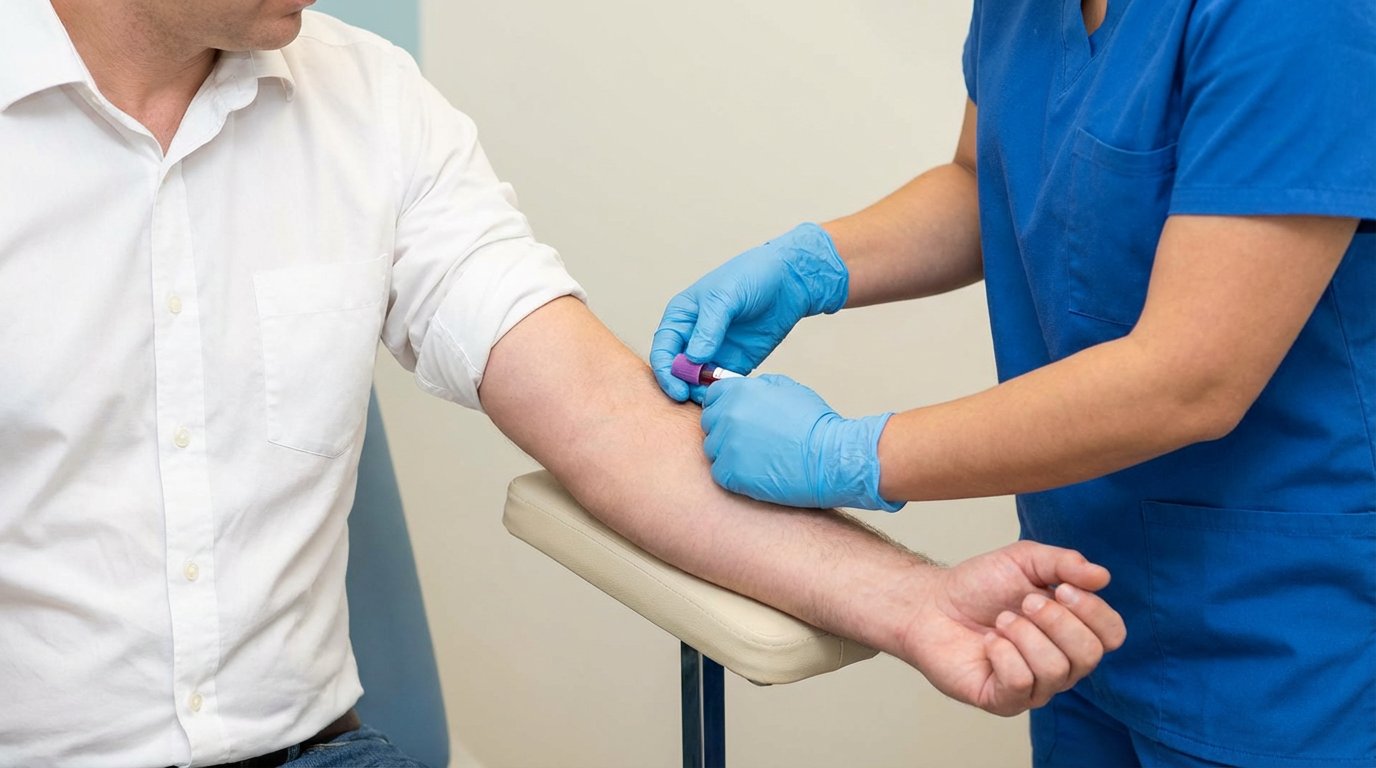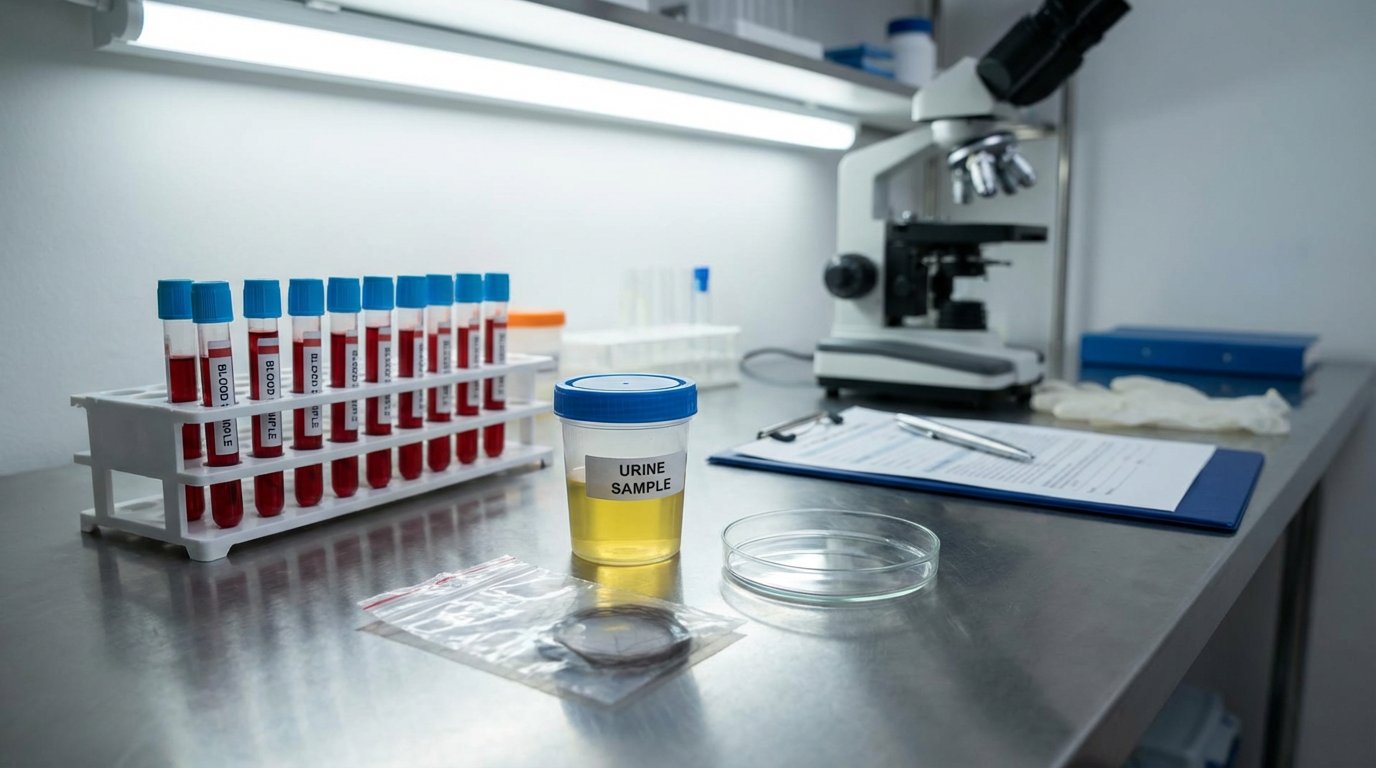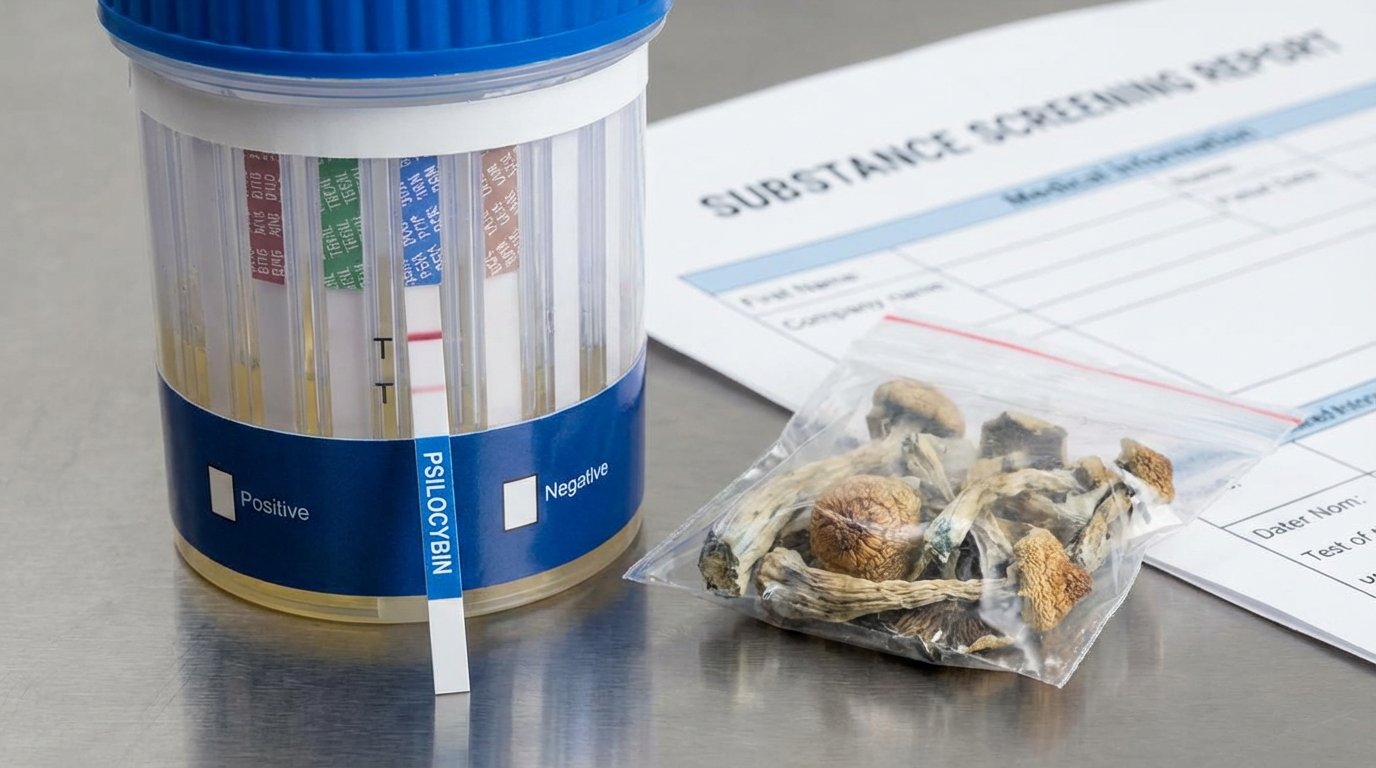Modern addiction treatment has moved beyond traditional one-size-fits-all approaches to offer you personalized care backed by neuroscience and digital technology. You’ll find evidence-based combinations of therapies tailored to your specific needs, including trauma-informed care, holistic practices, and AI-driven support systems. Treatment now integrates advanced medication protocols with 24/7 virtual resources, while focusing on your individual recovery timeline. Understanding these revolutionary changes can transform your perspective on addiction recovery options.
The Evolution From One-Size-Fits-All to Personalized Care

While traditional addiction treatment once relied heavily on standardized protocols, the field has undergone a dramatic shift toward personalized care approaches that recognize the complex interplay of biological, psychological, and social factors. Programs now commonly include detox supervision as an essential first step in the recovery process.
You’ll find that modern treatment methods emphasize individualized treatment plans tailored to your specific needs, replacing the outdated one-size-fits-all model. This evolution incorporates personalized strategies that account for your unique triggers, environmental factors, and potential comorbid conditions. Treatment providers now develop custom recovery timelines based on your progress rather than adhering to rigid schedules. They’ll integrate various evidence-based therapies, from cognitive behavioral techniques to holistic modalities, based on your response to treatment. Many facilities now offer massage therapy and other stress-reducing techniques as complementary treatments. Digital innovations like CBT4CBT programs are expanding access to effective care through remote delivery options. This adaptive approach allows for dynamic adjustments to your care plan, ensuring that interventions remain effective and relevant throughout your recovery journey.
Digital Technology’s Role in Modern Recovery Programs
As digital technology continues transforming healthcare delivery, modern addiction recovery programs have integrated sophisticated digital tools that expand access and personalize treatment. You’ll find platforms like the Therapeutic Education System (TES) delivering adaptive modules that adjust to your learning pace, while recovery apps such as Poplar and Sober Grid provide personalized plans and milestone tracking. The interventions’ limited maintenance costs make them particularly attractive for long-term implementation. Wearable devices like SCRAM bracelets monitor alcohol consumption levels and instantly alert healthcare providers of potential relapses. Social media platforms, particularly Facebook at 98.2%, dominate digital recovery support networks.
Digital tools now extend beyond basic tracking, incorporating AI-driven analytics to predict relapse risks and trigger timely interventions. You can access 24/7 support through telemedicine sessions, text-based communications, and online communities. Research shows that 72.3% of outpatients prefer SMS support, while 70.1% favor app-based assistance. While these innovations enhance treatment accessibility, it is essential to recognize that digital connectivity requires balanced implementation to avoid potential overreliance and privacy concerns.
Brain Science and Medical Breakthroughs in Treatment

Recent neuroscientific breakthroughs have revolutionized addiction treatment through targeted biological interventions and precision medicine approaches. You’ll find that modern treatments now utilize advanced neurotransmitter modulation techniques to reset disrupted brain circuits and reduce cravings. These interventions include GLP1 receptor agonists for alcohol use disorder and mGlu receptor-targeted medications for stimulant addiction. The integration of virtual platforms has made these advanced treatments accessible to patients in remote locations. With board-certified physicians leading treatment teams, patients receive the highest standard of medical care.
Relapse prevention strategies have evolved greatly, incorporating long-acting medications and personalized treatment protocols based on genetic markers and biological profiles. Integrating mindfulness-based therapies has significantly improved patients’ emotional regulation and ability to manage triggers. You can access innovative non-invasive treatments like focused ultrasound therapy, which targets specific brain regions to decrease craving intensity. Additionally, real-time brain monitoring systems help predict relapse risks, while immunotherapies and gene therapies show promise in blocking substances from affecting the brain, marking a new era in addiction medicine.
The Shift Towards Trauma-Informed Care Approaches
Understanding the deep connection between past trauma and addiction allows you to recognize why traumatic experiences often drive substance use as a coping mechanism. Studies show that 95% of patients in substance use disorder treatment report experiencing trauma in their lives. You’ll find that creating physically and emotionally safe treatment spaces becomes essential, as traditional confrontational approaches can retraumatize clients and hamper recovery. Building trust through empathetic, collaborative relationships enables providers to address both trauma and addiction simultaneously, leading to better engagement and long-term outcomes. Modern treatment approaches focus on developing custom treatment plans that integrate multiple therapeutic methods to address each individual’s unique trauma history and addiction patterns. Modern facilities now commonly incorporate evidence-based practices like EMDR and DBT to ensure treatment effectiveness is supported by clinical research.
Understanding Past Trauma’s Impact
The profound relationship between trauma and addiction has revolutionized modern treatment approaches, leading to the development of trauma-informed care methodologies. You’ll find that trauma triggers and emotional dysregulation often underlie substance use as a coping mechanism, creating complex recovery challenges. Social workers implementing EMDR and DBT have shown significant success in addressing trauma-rooted substance abuse.
| Impact Area | Clinical Manifestation |
|---|---|
| Physical | Racing heartbeat, digestive issues |
| Psychological | Guilt, shame, hopelessness |
| Behavioral | Avoidance, substance seeking |
| Relational | Trust issues, social withdrawal |
Understanding past trauma’s influence requires recognizing how it shapes both addiction patterns and treatment engagement. You’re dealing with interconnected symptoms where unresolved trauma resurfaces after temporary substance relief. Modern treatment methods now emphasize safety, choice, and control while integrating trauma awareness across all intervention aspects. This client-centered approach directly addresses the underlying trauma without requiring explicit disclosure, improving retention rates and recovery outcomes.
Safe Spaces Matter Most
While traditional addiction treatment once focused primarily on substance use, modern facilities have shifted toward creating trauma-informed environments that prioritize both physical and emotional safety. You’ll find today’s treatment spaces designed to minimize sensory triggers while maximizing emotional comfort through calming aesthetics and predictable routines.
Safe environments extend beyond physical design to include client autonomy and shared decision-making. You’re empowered to guide your treatment pace, choose therapeutic modalities, and maintain control over sensitive discussions. This collaborative approach emphasizes trustworthiness and transparency between providers and patients. Research demonstrates these trauma-informed approaches yield higher retention rates and improved outcomes compared to conventional methods.
Treatment centers now train staff to recognize trauma indicators and implement universal precautions for all clients, ensuring consistent care delivery without requiring trauma disclosure. This all-encompassing approach addresses both addiction and underlying trauma simultaneously.
Building Trust Through Empathy
Modern addiction treatment has fundamentally shifted toward empathy-based, trauma-informed approaches that reshape the therapeutic alliance between providers and clients. You’ll find that trust development now centers on asking “what happened to you” rather than “what’s wrong with you,” creating a foundation for genuine healing relationships.
Through empathy building, providers establish collaborative partnerships that give you more control over your recovery journey. This approach recognizes that trauma often underlies addiction, requiring treatment that’s sensitive to your unique experiences and cultural background. You’ll work with staff trained in trauma-informed care who understand the importance of creating predictable, safe environments. This modern framework supports your agency while avoiding retraumatization, leading to better engagement and improved long-term recovery outcomes.
Integration of Holistic and Alternative Therapies
Through holistic addiction treatment, you’ll experience the therapeutic power of mind-body interventions that enhance traditional recovery methods and boost overall treatment outcomes. You can access natural pain management alternatives like acupuncture and mindfulness meditation, which clinical studies show reduce withdrawal symptoms and lower relapse rates without dependency risks. Your individualized wellness plan may incorporate various therapeutic modalities, from art therapy to nutritional counseling, addressing your unique physical, emotional, and spiritual needs throughout the recovery journey. Research demonstrates that comprehensive healing approaches lead to higher success rates in achieving and maintaining sobriety compared to traditional methods alone. Studies indicate that equine therapy programs can double treatment completion rates when integrated into recovery plans.
Mind-Body Connection Benefits
As scientific evidence continues to validate the intricate relationship between psychological and physiological well-being, holistic and alternative therapies have emerged as powerful components of addiction treatment. Through mindfulness practices and emotional regulation techniques, you’ll develop heightened body awareness and stress management skills essential for sustainable recovery.
| Practice | Physical Benefit | Mental Benefit |
|---|---|---|
| Yoga | Improves respiratory function | Reduces anxiety triggers |
| Meditation | Lowers cortisol levels | Enhances self-awareness |
| Breathwork | Regulates nervous system | Processes trauma |
These mind-body interventions work by addressing both psychological and physiological aspects of addiction. You’ll learn to recognize physical stress signals before they escalate into cravings, while simultaneously developing tools to process underlying emotional trauma that traditional talk therapy might miss.
Natural Pain Management Options
While traditional pain management often relies heavily on opioids, natural and holistic approaches have emerged as evidence-based alternatives with promising efficacy and reduced addiction risk. You’ll find that herbal remedies like topical capsaicin (0.025%) demonstrate measurable pain reduction for post-surgical and neuropathic conditions. Over 70% of military personnel and 50% of U.S. adults now utilize natural alternatives for pain control.
These approaches extend beyond herbal remedies to include evidence-based practices like mindfulness, yoga, and acupuncture particularly effective when integrated with conventional treatments. The VA now recommends these complementary therapies as first-line interventions for chronic pain. While promising, you should discuss any natural alternatives with your healthcare provider, as some herbal products can interact with medications or pose toxicity risks.
Personalized Wellness Pathways
Modern addiction treatment has evolved beyond one-size-fits-all approaches to embrace personalized wellness pathways that integrate both evidence-based and alternative therapies. Through personalized assessments using tools like the Recovery Capital Index, you’ll receive individualized strategies that address your unique needs across multiple dimensions of wellness.
| Treatment Component | Traditional Approach | Modern Personalized Approach |
|---|---|---|
| Therapy Selection | Standard 12-step only | Multiple evidence-based options |
| Recovery Assessment | Generic milestones | Extensive capital metrics |
| Support Systems | Group meetings only | Varied support networks |
| Relapse Management | Viewed as failure | Learning opportunity |
| Treatment Focus | Substance use only | Holistic wellness integration |
This integrated approach recognizes that your recovery journey is unique, combining traditional methods with alternative practices like mindfulness and art therapy while addressing underlying factors such as trauma and co-occurring conditions.
Evidence-Based Combinations Replacing Single Methodologies
Research demonstrates that single-methodology approaches to addiction treatment have given way to more effective evidence-based combinations. Studies consistently show that integrating pharmacological interventions with behavioral therapies yields superior outcomes compared to standalone treatments.
Modern addiction treatment succeeds by combining medication with behavioral therapies, proving more effective than single-method approaches alone.
Key evidence-based combinations now dominating modern treatment include:
- Naltrexone paired with structured behavioral interventions for alcohol dependence
- Methadone or buprenorphine combined with counseling for opioid use disorders
- CBT integrated with contingency management for multiple substance dependencies
- Motivational enhancement therapy synchronized with cognitive restructuring techniques
You’ll find these combinations implemented across accredited facilities, with treatment duration and intensity tailored to your specific needs. This personalized approach, supported by Level 4 evidence, demonstrates remarkably higher completion rates and improved long-term outcomes compared to traditional single-methodology treatments.
Frequently Asked Questions
How Do Insurance Companies Typically Cover Modern Addiction Treatment Approaches?
You’ll find that insurance coverage for addiction treatment has expanded considerably. Under federal parity laws, insurers must provide equal coverage for substance use disorders as they do for medical conditions. You can typically access a full continuum of care, including detox, outpatient services, and medication-assisted treatment. Treatment accessibility has improved through reduced pre-authorization requirements and expanded telehealth options, though out-of-network costs may remain higher.
What Percentage of Patients Maintain Long-Term Sobriety With Newer Treatment Methods?
You’ll find that long-term success rates vary considerably based on treatment combinations. Research shows that integrated approaches using MAT plus behavioral therapy achieve 50-60% sobriety rates at one year, compared to 20-30% with traditional methods alone. Treatment effectiveness increases to 65-70% when you incorporate trauma-informed care, and rises further to 70-75% with personalized recovery plans that include mindfulness and ongoing support services.
How Long Does a Typical Modern Addiction Treatment Program Last?
Modern addiction treatment programs offer significant duration flexibility, typically ranging from 30 to 90 days for inpatient care. You’ll find that treatment customization allows for varying lengths based on your specific needs. While 30-day programs are common, research shows that 90-day treatments yield better outcomes. Your program length may extend further through outpatient care, sober living arrangements, or maintenance therapy. Insurance coverage and personal obligations often influence the duration of your treatment plan.
Are Modern Treatment Methods More Expensive Than Traditional Rehabilitation Programs?
When you compare costs, modern treatment methods typically require a higher initial investment than traditional rehabilitation programs. You’ll find that modern programs range from $6,300 for outpatient to $80,000 for luxury facilities, while traditional public programs average around $8,000. However, treatment accessibility has improved through various payment options and insurance coverage. The cost difference reflects modern programs’ thorough approach, incorporating medical advances and specialized therapies that weren’t available in traditional settings.
Can Patients Switch Between Different Treatment Approaches if One Isn’t Working?
Yes, you can switch between treatment approaches, as modern addiction programs prioritize patient autonomy and treatment flexibility. If your current method isn’t effective, you’ll find that most facilities offer hybrid models allowing seamless shifts between different therapies. You’re able to move from traditional approaches to more innovative treatments, like VR therapy or neurofeedback. Your treatment team will adjust your care plan based on your progress and response to specific interventions.






